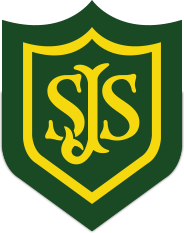Curriculum Overview
Curriculum Overview
The curriculum at St John’s develops confident, well-rounded individuals who are prepared to make a positive contribution to society.
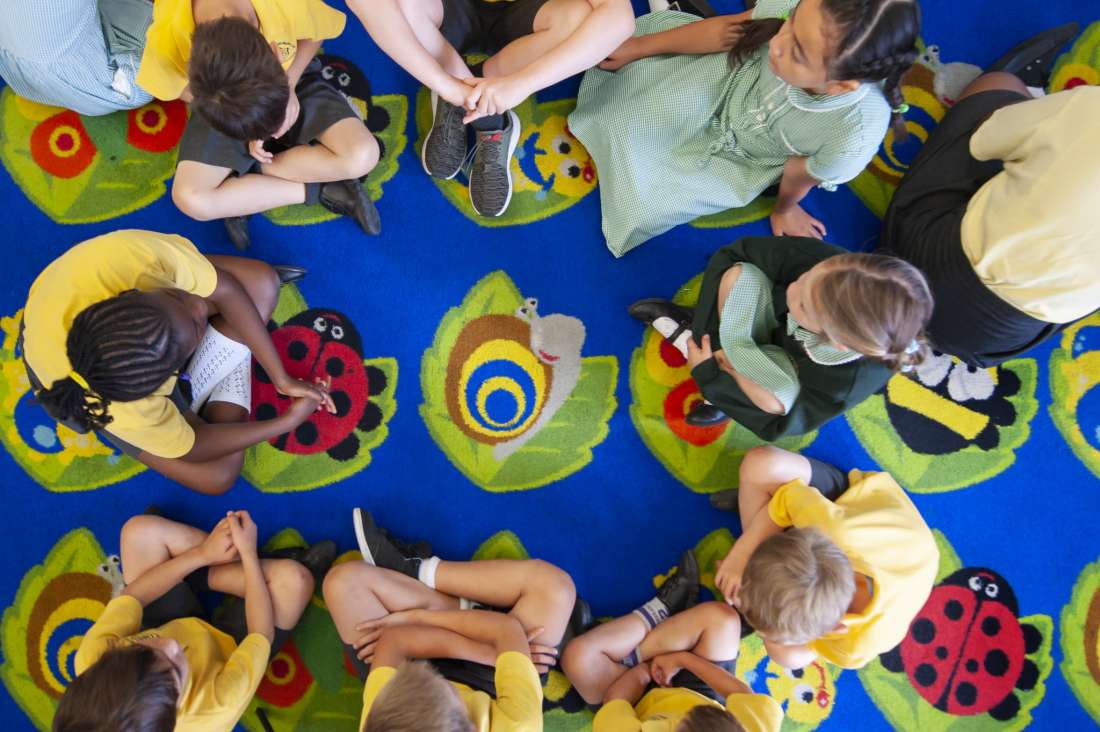
Curriculum Overview
Curriculum Overview
The curriculum at St John’s develops confident, well-rounded individuals who are prepared to make a positive contribution to society.
Intent
At St John’s, our curriculum is rooted in ambition and inclusivity. We strive to ensure that every learner—regardless of background—has access to the knowledge, skills, and experiences they need to succeed. Our curriculum is broad, well-sequenced, and coherently planned to support progression into future learning and employment. We are committed to providing equitable opportunities for all pupils, with a strong focus on embedding cultural capital, particularly for those who are disadvantaged.
Implementation
Across the All Saints Partnership, curriculum leads have collaborated to design high-quality, medium-term plans for all subjects. These plans draw from well-established schemes and resources, which serve as a foundation for coherently sequenced lessons that support knowledge retention and understanding.
A small-step approach is used throughout, informed by cognitive load theory, to ensure pupils can build knowledge without becoming overwhelmed. Vocabulary is carefully mapped into tiers, and pupils are encouraged to use subject-specific language in both discussion and written tasks.
We distinguish between substantive knowledge (the facts and concepts of a subject) and disciplinary knowledge (the methods and thinking processes of subject experts). Children are explicitly taught to “think like a scientist,” “think like a historian,” or “think like an artist,” helping them engage deeply with subject matter. Every new topic begins with a knowledge organiser that outlines key vocabulary, provides visuals and set outs prior and future learning.
Our teaching follows a consistent six-part lesson model:
- Retrieval – using a memory platform to activate prior knowledge
- New Learning
- Talk Task
- Develop Learning
- Independent Task
- Plenary
This structure promotes effective learning and ensures pupils revisit and build on what they already know—because, as David Ausubel stated, “The most important single factor influencing learning is what the learner already knows.”
Impact
Our curriculum has a clear and positive impact on our pupils. Children are enthusiastic about their learning and are able to articulate what they know with confidence. They make meaningful connections across subjects and recall prior knowledge with increasing accuracy and depth. Pupils talk with enthusiasm about school trips, practical experiences, and enrichment activities, which enhance and contextualise their learning.
Whole School Curriculum Overview 2025 Y1 – Y6
2025/2026
Spring 1 Curriculum
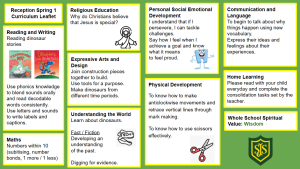
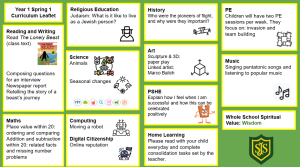
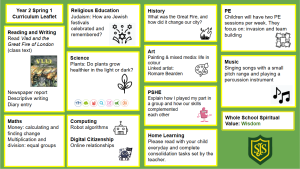
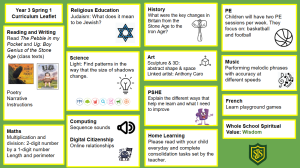
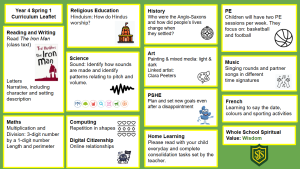
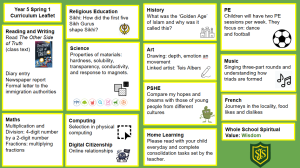
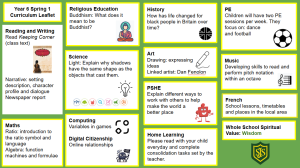
Autumn 2 Curriculum
Autumn 1 Curriculum
2024/2025
Summer 2 Curriculum
REC – Summer 2 Curriculum Leaflet
Y1 – Summer 2 Curriculum Leaflet
Y2 – Summer 2 Curriculum Leaflet
Y3 – Summer 2 Curriculum Leaflet
Y4 – Summer 2 Curriculum Leaflet
Y5 – Summer 2 Curriculum Leaflet
Y6 – Summer 2 Curriculum Leaflet
Summer 1 Curriculum
REC – Summer 1 Curriculum Leaflet
Y1 – Summer 1 Curriculum Leaflet
Y2 – Summer 1 Curriculum Leaflet
Y3 – Summer 1 Curriculum Leaflet
Y4 – Summer 1 Curriculum Leaflet
Y5 – Summer 1 Curriculum Leaflet
Y6- Summer 1 Curriculum Leaflet
Spring 2 Curriculum
REC – Spring 2 Curriculum Leaflet
Y1 – Spring 2 Curriculum Leaflet
Y2 – Spring 2 Curriculum Leaflet
Y3 – Spring 2 Curriculum Leaflet
Y4 – Spring 2 Curriculum Leaflet
Y5 – Spring 2 Curriculum Leaflet
Y6 – Spring 2 Curriculum Leaflet
Spring 1 Curriculum
REC – Spring 1 Curriculum Leaflet
Y1 – Spring 1 Curriculum Leaflet
Y2 – Spring 1 Curriculum Leaflet
Y3 – Spring 1 Curriculum Leaflet
Y4 – Spring 1 Curriculum Leaflet
Y5 – Spring 1 Curriculum Leaflet
Y6 – Spring 1 Curriculum Leaflet
Autumn 2 Curriculum
REC – Autumn 2 Curriculum Leaflet
Y1 – Autumn 2 Curriculum Leaflet
Y2 – Autumn 2 Curriculum Leaflet
Y3 – Autumn 2 Curriculum Leaflet
Y4 – Autumn 2 Curriculum Leaflet
Y5 – Autumn 2 Curriculum Leaflet
Y6 – Autumn 2 Curriculum Leaflet
Autumn 1 Curriculum
REC – Autumn 1 Curriculum Leaflet
Y1 – Autumn 1 Curriculum Leaflet
Y2 – Autumn 1 Curriculum Leaflet
Y3 – Autumn 1 Curriculum Leaflet
Y4 – Autumn 1 Curriculum Leaflet
Y5 – Autumn 1 Curriculum Leaflet
Y6 – Autumn 1 Curriculum Leaflet
